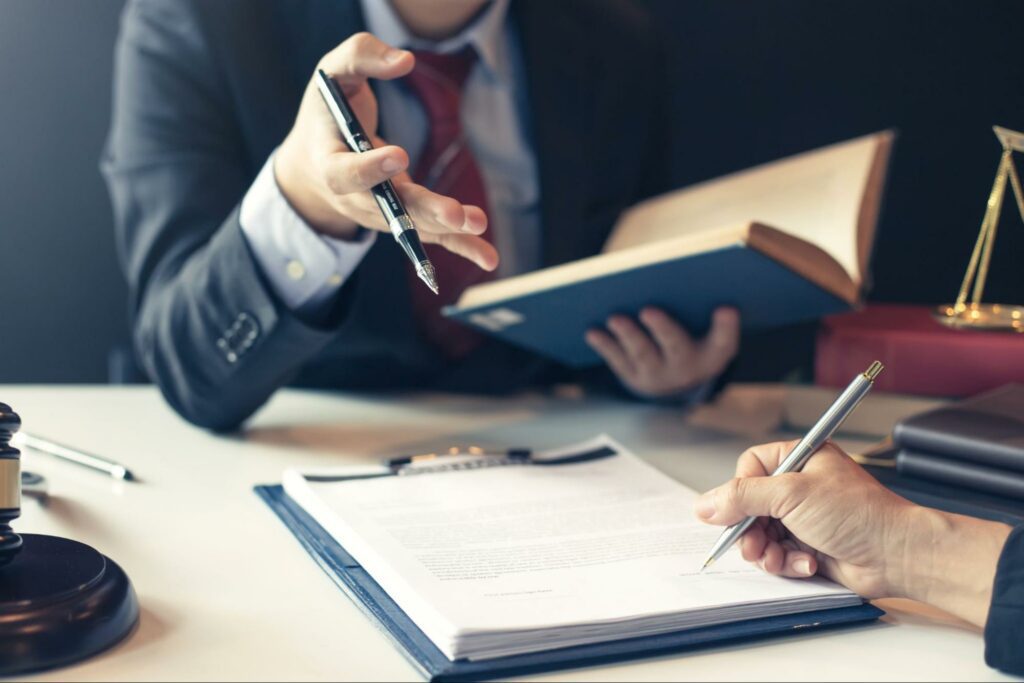Impaired driving is a serious offense in Michigan, with a variety of potential consequences for those caught operating a vehicle under the influence of alcohol or drugs. Those facing an initial DUI (or OWI as it’s officially called in Michigan) may face fines, probation, treatment programs, or even jail time. And those facing multiple offenses can face even harsher penalties, including the suspension or full revocation of legal driving rights.

However, even those who have had their driving rights revoked may qualify for driver’s license reinstatement after taking the necessary legal and rehabilitation steps. If you’ve struggled with impaired driving in the past, but want to win back your driving rights, or if your license has recently been revoked and you want to understand what it might take to eventually get your license back, read on for a guide.
Understanding Impaired Driving Charges in Michigan
Impaired driving charges in Michigan generally fall under the category of Operating While Intoxicated (OWI). This is similar to what most states call Driving Under the Influence (DUI). The purpose of these laws is to improve road safety by deterring vehicle use by those who are under the influence of alcohol or drugs. As with many other criminal offenses, the penalties tend to get more severe with each additional offense. Though each case is different, here are some common penalties that often come with these charges:
The first category includes criminal penalties. These are the court-ordered steps that are outlined during the sentencing or plea-bargaining portion of an OWI case. Even for first offenders, these tend to vary based on the severity and circumstances surrounding the arrest, but here are some general guidelines:
-
Fines: Monetary fines are common in OWI cases. They often include up to $500 for first offenders, and can range up to $5,000 for those with multiple offenses.
-
Jail Time: Jail time is more rare for first offenders, though it is possible to receive up to 93 days. Those with multiple offenses or aggravating factors may serve longer sentences.
-
Probationary Terms: Individuals may face probation periods and/or have to participate in mandatory alcohol education or treatment programs.
In addition to the criminal penalties outlined above, those with multiple offenses may also lose their legal driving privileges. There are a couple different penalties under this category, but both can have a significant impact on your daily life:
-
Driver’s License Suspension: This involves suspending the offender’s driver’s license for a specified period, usually up to six months. This may occur after the first or second offense. After the suspension has been lifted, individuals may re-apply for their license with the Secretary of State.
-
Driver’s License Revocation: Those with multiple offenses may have their driver’s license fully revoked. You may still apply for reinstatement after a waiting period (usually one year), but this requires proving rehabilitation and scheduling a hearing with the Secretary of State, rather than simply applying for a new license.
Beyond the official penalties that may be imposed after receiving one or more OWI convictions, there are many areas of your everyday life that may also be impacted. Here are some issues that often arise for those facing impaired driving incidents, particularly for those who lose their legal driving rights:
-
Strained Relationships: Those who face legal consequences often end up with strained relationships with family and friends. This issue can be even more pronounced for those who lose their driving rights, since they often become reliant on loved ones for daily transportation.
-
Higher Insurance Rates: Those with impaired driving records tend to increase risk for insurers, so this may lead to higher premiums or cancellation of insurance policies.
-
Employment Issues: Criminal convictions may lead to job loss or difficulty finding new employment, particularly in fields where having a valid driver’s license is necessary.
Importance of Legal Assistance for License Restoration
Navigating the license restoration process in Michigan is complex and significantly different from defending against the initial DUI/OWI charge(s). While the initial OWI defense focuses on contesting the charges and mitigating penalties, the license restoration process involves proving to the state that you have reformed and are committed to responsible driving in the future. This process often requires detailed documentation, such as evidence of sobriety, and may include hearings with the Michigan Secretary of State.

Legal representation can be incredibly beneficial during this phase, as an experienced attorney can help gather the necessary evidence, prepare for hearings, and effectively present your case to give you the best possible chances of restoring your driving rights. There are many phases of this process, but the most important elements of any license restoration argument include any documentation of sobriety and rehabilitation, which an experienced attorney can help you gather. They can also help you prepare and practice your testimony, which will be delivered during your hearing with the Secretary of State. Ultimately, an experienced lawyer should be able to look at the specifics of your case and help you gather the evidence and testimony that is most relevant to your situation.
Navigating the Legal Process for License Restoration
Restoring a driver’s license in Michigan after multiple impaired driving convictions involves multiple steps. The process is designed to give rehabilitated individuals the chance to regain their legal driving rights, without sacrificing safety for the general public. As such, you must be able to demonstrate a sustained period of sobriety, compliance with any and all court orders, and a commitment to remaining sober and addressing any underlying issues that led to the initial impaired driving convictions.
To give you a better understanding of the requirements and process, here are some of the essential steps involved:
-
Waiting Period: Individuals who have had their driver’s license fully revoked generally have to wait a year or more before requesting a license restoration hearing. This time period is required so that there’s enough time to seek counseling or address substance abuse issues before driving rights are restored.
-
Request for Hearing: The first official step in the process is filing a request for a hearing with the Michigan Secretary of State’s Office. This hearing is where you’ll present any evidence you gather throughout the following steps.
-
Substance Abuse Evaluation: Individuals must generally meet with a state-approved substance abuse counselor for evaluation, which will be presented to the Secretary of State.
-
Sobriety Documentation: You should also gather any proof of sobriety, such as attendance records from support groups like AA, along with letters of support from credible sources.
-
Preparation for Hearing: Gather all necessary documents and prepare for your personal testimony, which is where you share your story and detail a firsthand account of your continuing rehabilitation and sobriety.
-
Hearing Attendance: Then it’s time to attend the scheduled hearing and present your case to the Secretary of State, including evidence of rehabilitation and responsible behavior.
-
Compliance with Requirements: After the hearing, you must continue to comply with any additional requirements or conditions set forth by the hearing officer to regain driving privileges. For example, individuals often have a period of driving with an interlock device on their vehicle before gaining unrestricted driving rights.
Overall, addressing impaired driving in Michigan is crucial for ensuring safety on the road. However, individuals with multiple impaired driving offenses still have the right to seek license restoration, as long as you’re committed to sobriety and rehabilitation. Seeking qualified legal representation can be incredibly valuable throughout this process, offering expertise and guidance to navigate the complex legal requirements and help you present an effective case.



